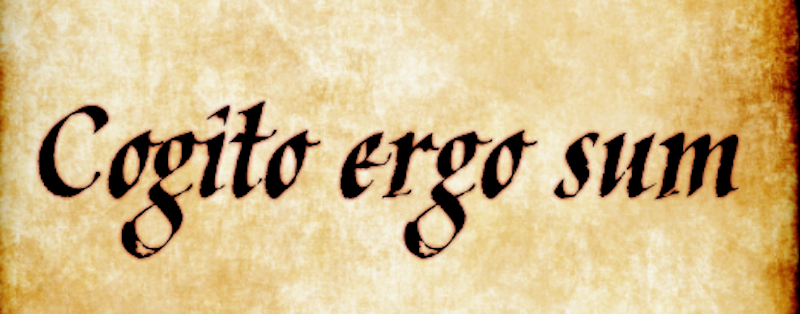Summary
Sovereignty defines the source of our authority to act. Sovereign is the right word for describing the essential distinction between our inalienable self and the administrative identifiers and attributes others assign to us online.

Descartes didn't say "I have a birth certificate, therefore I am." We do not spring into existence because some administrative system provisions an identifier for us. No single administrative regime, or even a collection of them, defines us. Doc Searls said this to me recently:
We are, within ourselves, what William Ernest Henley calls “the captain” of “my unconquerable soul”, and what Walt Whitman meant when he said “I know this orbit of mine cannot be swept by a carpenter's compass,” and “I know that I am august. I do not trouble my spirit to vindicate itself or be understood.” Each of us has an inner essence that is who we are.
Even in the digital realm, and limiting ourselves to what Joe Andrieu calls "functional identity", we are more than any single relationship. Our identity is something we are, not something we have. And it's certainly not what someone else provides to us. We are self-sovereign.
Some shrink from the self-sovereign label. There are some good reasons for their reluctance. Self-sovereignty requires some explanation. And it has political overtones that make some uncomfortable. But I've decided to embrace it. Self-sovereign identity is more than decentralized identity. Self-sovereign identity implies autonomy and inalienability.
If our identity is inalienable, then it's not transferable to another and not capable of being taken away or denied. To be inalienable is to be sovereign: to exercise supreme authority over one’s personal sphere—Whitman’s “orbit of mine.” Administrative identifiers, what others choose to call us, are alienable. Relationships are alienable. Most attributes are alienable1. Who we are, and our right to choose how we present ourselves to the world, is not alienable. The distinction between the inalienable and the alienable, the self-sovereign and the administrative, is essential. Without this distinction, we are constantly at the mercy of the various administrative regimes we interact with.
Self-sovereignty is concerned with relationships and boundaries. When we say a nation is sovereign, we mean that it can act as a peer to other sovereign states, not that it can do whatever it wants. Sovereignty defines the source of our authority to act. Sovereignty defines a boundary, within which the sovereign has complete control and outside of which the sovereign relates to others within established rules and norms. Self-sovereign identity defines the boundary in the digital space, gives tools to people and organizations so they can assert control—their autonomy, and defines the rules for how relationships are formed, authenticated, and used.
In the opening chapter of her groundbreaking book, The Age of Surveillance Capitalism, Shoshana Zuboff asks the question "Can the digital future be our home?" Not if it's based on administrative identity systems and the anemic, ofttimes dangerous, relationships they create. By starting with self-sovereignty, we found our digital relationships on principles that support and preserve human freedom, privacy, and dignity. So, while talking about trust, decentralization, credentials, wallets, and DIDs might help explain how self-sovereign identity works, sovereignty explains why we do it. If self-sovereignty requires explanation, maybe that's a feature, not a bug.
End Notes
- I'm distinguishing attributes from traits without going too deep into that idea for now.
Photo Credit: Cogito, Ergo Sum from Latin Quotes (Unknown License)




